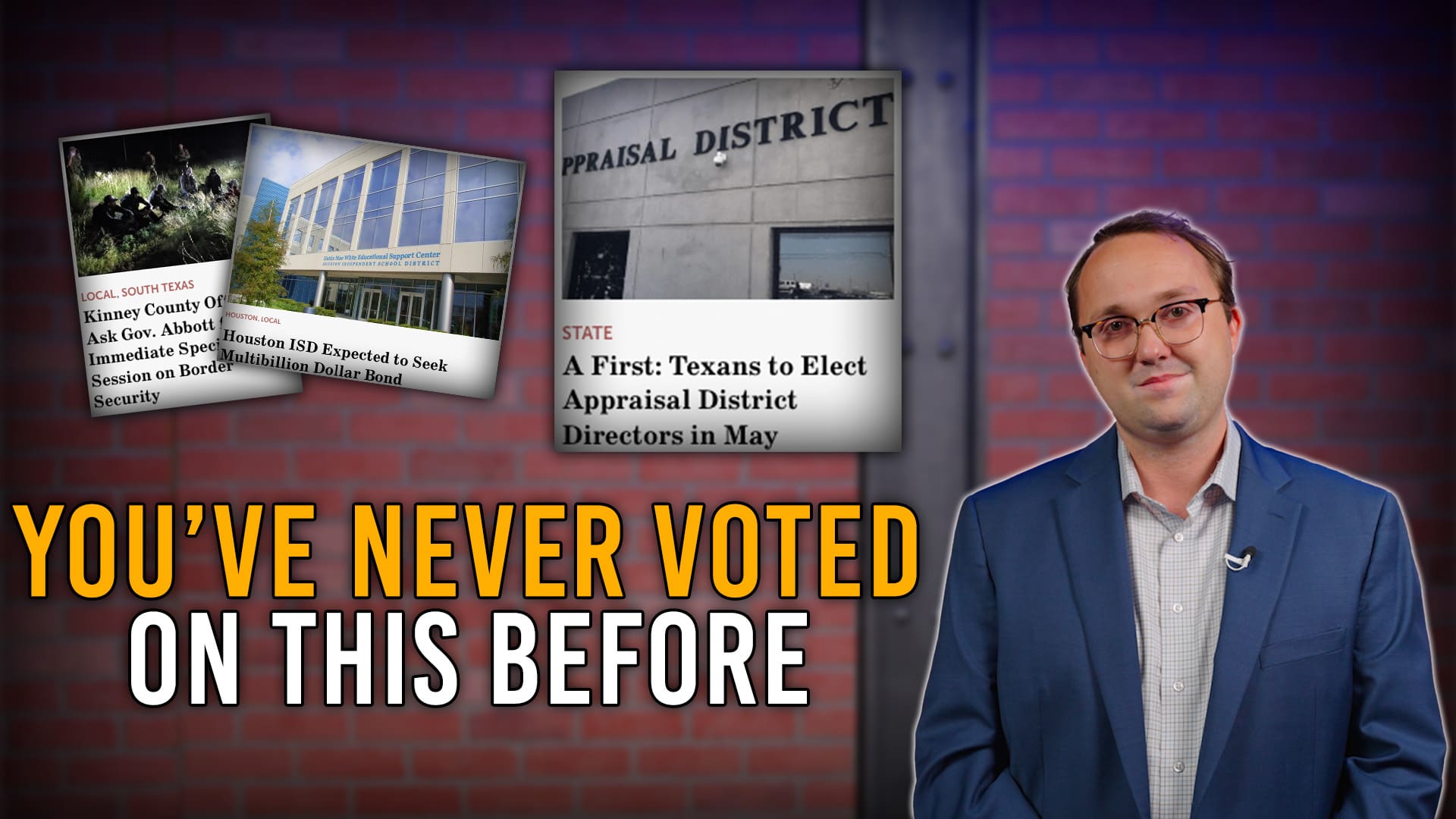Charter amendment petitions have long been a way for residents to communicate with their governments and force change, but recently local governments have fought back and increased their efforts to wrongfully thwart citizens’ voices.
In the past five years, Houston residents have seen many instances where their city attempted to stifle their voice. The city wrongfully invalidated signatures on a petition to repeal the Equal Rights Ordinance, then placed it on the ballot with misleading language; they delayed counting a defined-contribution petition, which still sits uncounted more than a year later; and they delayed counting a firefighter pay-parity petition while officials played politics. These instances resulted in four different lawsuits, with the citizens winning every one of them.
But it shouldn’t have had to come to litigation.
State law outlines the process citizens must follow to petition their government, but it is conspicuously vague on how a local government must handle petition validation and ballot language. This has led to local entities taking advantage of the leverage given to them by attempting to kill initiatives that officials do not support.
The actions of local officials have shown they are willing to go to great lengths, even break the law, to stop an initiative they disagree with. This is what some lawmakers hope to fix.
Local government abuse isn’t a new issue, and lawmakers have been trying to rein it in for years. Last legislative session, State Sen. Paul Bettencourt (R–Houston) filed a bill that would have reformed and safeguarded the petition process and he told Texas Scorecard he plans to do it again: “next session I am definitely refiling Senate Bill 488 updated with penalties for behavior like what the city of Houston is doing.”
Senate Bill 488 would’ve allowed any registered voter of a jurisdiction to submit petition ballot language to the secretary of state for review, to prevent a local entity from using misleading text. It would’ve also allowed a court to draft ballot language if it determined the city had misled the public, and even required a convicted city to submit language for any proposition to the secretary of state for four years. Furthermore, the bill would have prevented cities from wrongfully invalidating or restricting signatures, and streamlined the petition form itself.
“It is completely unfair to voters that they have to spend their money to sue the city to force them to follow the law,” Bettencourt said, “The drainage tax twice, firefighter equal pay, HERO, it has got to stop.”
He is far from alone on this issue.
In a Facebook post last week, State Rep. Briscoe Cain (R–Deer Park) said, “Local governments cannot keep denying or delaying citizens’ right to petition their government.”
Texas Scorecard spoke with Cain about his post.
“If local jurisdictions are going to continue to abuse their power by denying constitutionally protected rights, then the solution is for the State to preempt those actions with legislation,” he said. “I’m committed to working with anyone next session to protect, streamline, and make the petition process more efficient.”
The petition process has undoubtedly been corrupted by local officials in across Texas, and is in sore need of increased accountability to the citizens and the state. Since local entities have shown they refuse to follow the law when given any sort of flexibility, it’s promising to see state lawmakers already planning to address the issue next session. There’s no reason why citizens should continue to have to litigate or courts should have to compel local entities to comply with state law.




